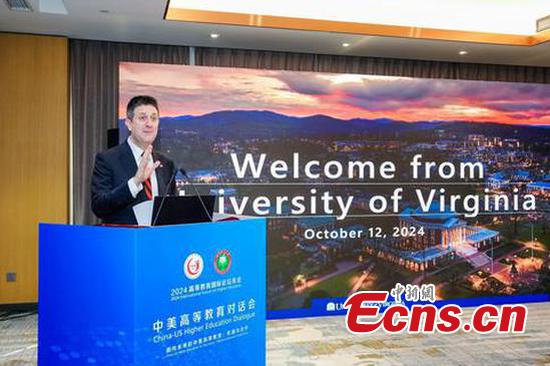
Chief Representative of the University of Virginia (UVA) China Office Justin O’Jack addresses the China-U.S. Higher Education Dialogue in Beijing on October 12, 2024. (Photo/China Association of Higher Education)
(ECNS) – "Educational and cultural exchanges contribute to mutual understanding of cultural differences and common humanity between the United States and China, which are vital ingredients for returning to better, more constructive relations ahead," said Chief Representative of the University of Virginia (UVA) China Office Justin O’Jack at China-US Higher Education Dialogue on Saturday in Beijing.
Cultural exchanges are a vital source of U.S.-China relations and contribute to the stable development of the bilateral relationship.
As a representative of American universities in China over the past 20 years, O’Jack has witnessed thousands of American students coming to China to study, and several who returned after graduation and continue to live and work in China today.
People-to-people exchanges like these were made possible 45 years ago, O’Jack said, because in January 1979, then U.S. president Jimmy Carter and then Chinese Vice Premier Deng Xiaoping signed an agreement at the White House between the U.S. and China on cooperation in science and technology. This was the first major agreement between the two governments.
In O’Jack’s view, this agreement has provided a framework for the exchange of scientists, scholars, and students between the two countries, promoting cooperation between their research institutions, colleges and universities.
Forty-five years ago, cultural exchanges had formed the foundation of U.S.-China relations. Today, such exchanges, now more than ever before, play an equally important role in stabilizing the relationship between the two major powers.
To encourage more American students to study abroad in China, UVA established a credit-bearing course exploring the role of sports to facilitate exchanges between the U.S. and China, creating opportunities to enhance mutual understanding.
This was inspired by U.S.-China “Ping-Pong Diplomacy” in 1971, according to O’Jack.
In 1971, the U.S. table tennis team was invited by its Chinese counterpart to visit China at the conclusion of the 31st World Championships in Nagoya, Japan. The U.S. players landed in Beijing on April 10, becoming the first U.S. group to visit China since the founding of the People's Republic of China in 1949. The Chinese team paid a return visit the following year.
In January 2024, on the 45th anniversary of the establishment of China-U.S. diplomatic relations, the UVA's table tennis delegation retraced the route of the 1971 U.S. table tennis team's visit to China, from Hong Kong to Beijing, and finally to Shanghai.
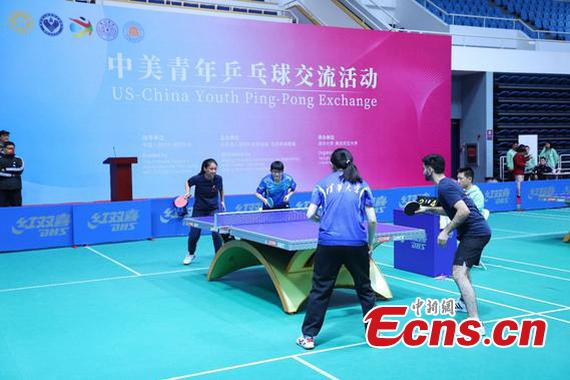
Over half a century ago, the exchanges among the two table tennis teams paved the way for normalization of China-U.S. relations in 1979.
O’Jack noted that the friendly matches, which were intentionally designed as doubles with American and Chinese students paired in teams, received an enthusiastic response from students and spectators alike.
He said that such a game was a “win-win” for both sides.
“Despite significant challenges in the U.S.-China relationship, both governments clearly remain fully committed to people-to-people exchanges,” he noted.
At the same event, Shi Yigong, president of Westlake University, Chinese Academy of Sciences academician, and vice president of the China Association of Higher Education, stated that educational cooperation serves as a cornerstone for the stable development of U.S.-China relations, and a prime example of mutual engagement between the two peoples, establishing a strong emotional connection between both nations.
Shi further pointed out that in recent years, amid intensified U.S. competition with China, interactions in higher education between the two countries have significantly decreased, with restrictions on personnel mobility and research resources, resulting in misunderstandings between the peoples of both countries.
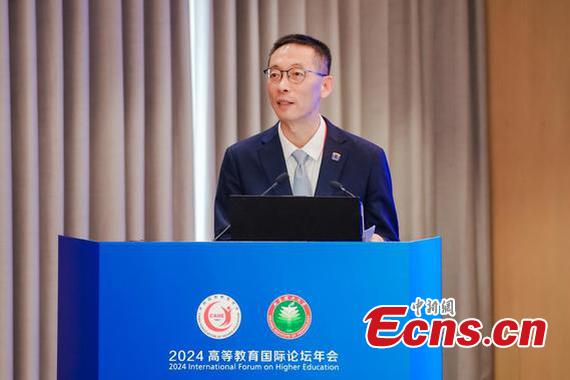
He therefore called upon both sides to address these challenges with smarter approaches and closer communication.
Higher education is fundamentally a forward-looking endeavor. Both talent cultivation and scientific research aim to provide humanity with a better and more sustainable future, according to Shi.
He thinks that the future of U.S.-China relations largely depends on how colleges and universities in both countries nurture future leaders and foster technological and cultural advancements, with youth at the core of this effort.
China welcomes more American youth to see the country and understand it from their own perspectives, said Shi.
He emphasized that education should go beyond borders, enabling young people from different backgrounds to engage in dialogues and spark innovation.








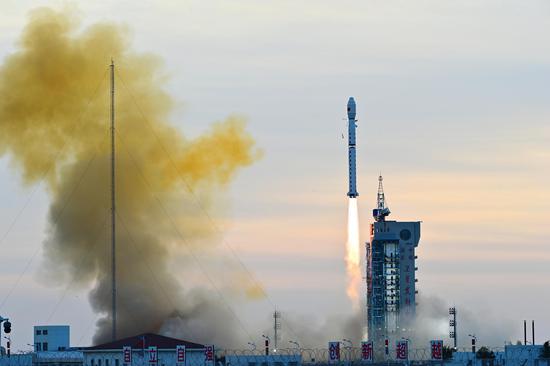
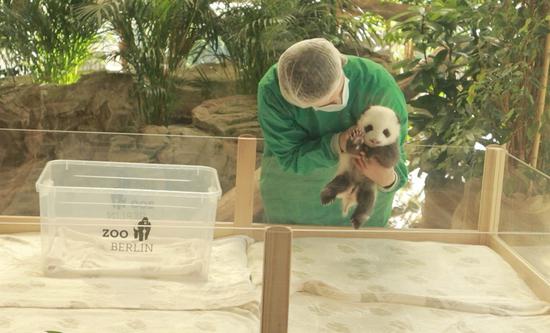


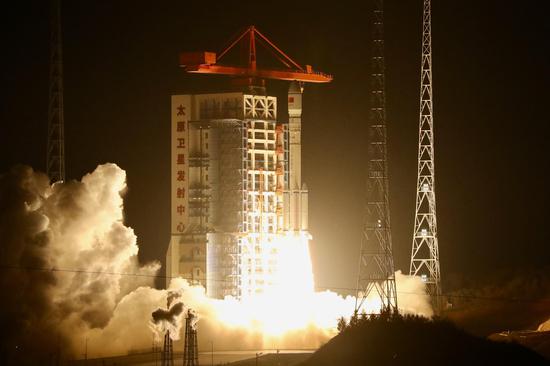
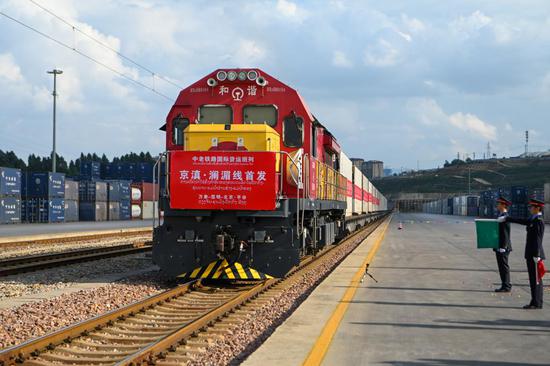
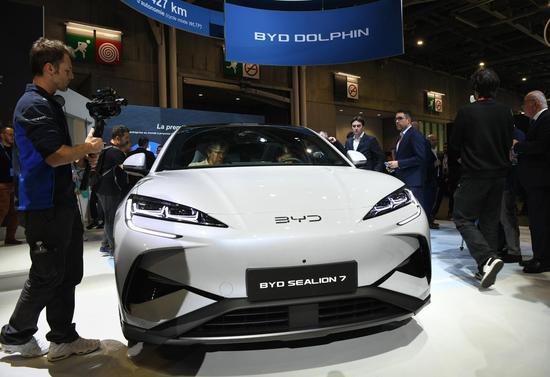

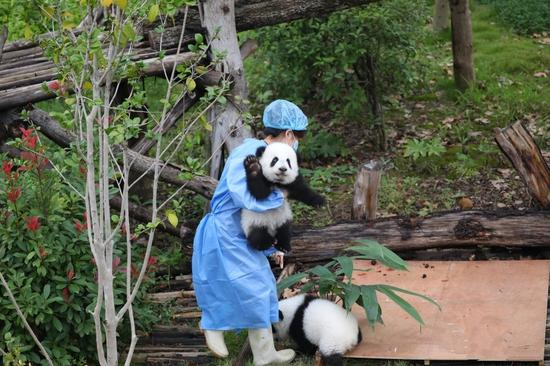

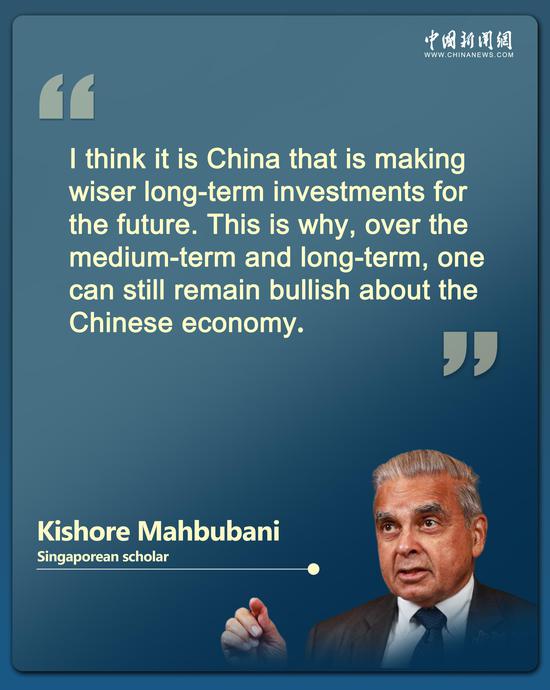
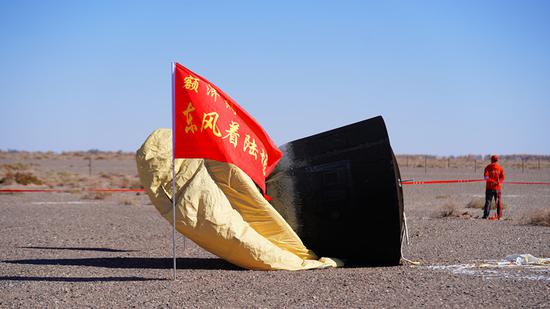





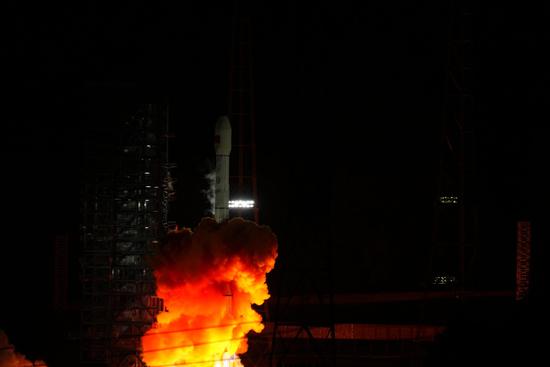





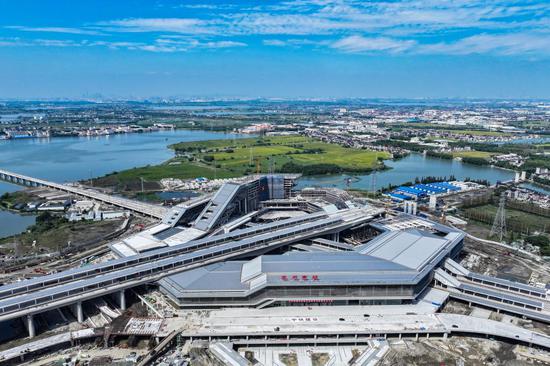

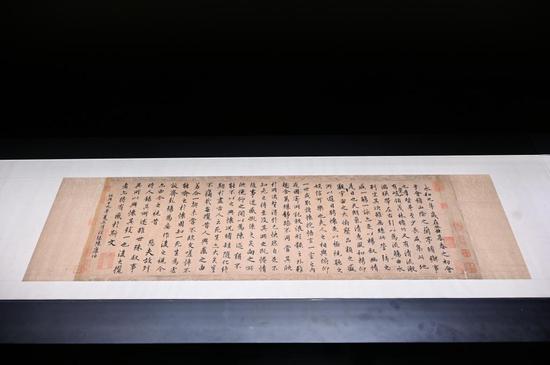


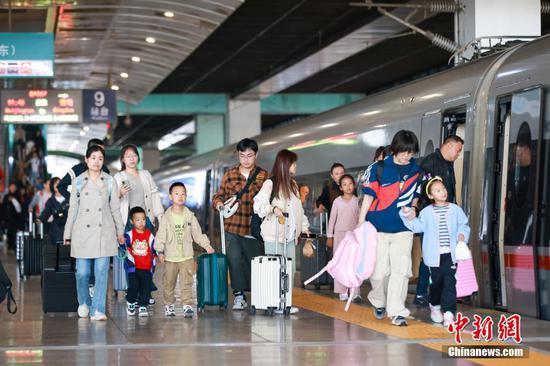
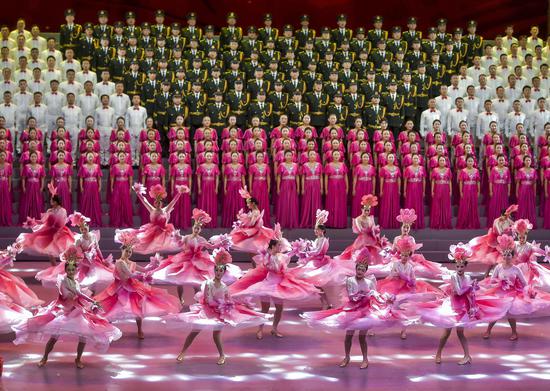


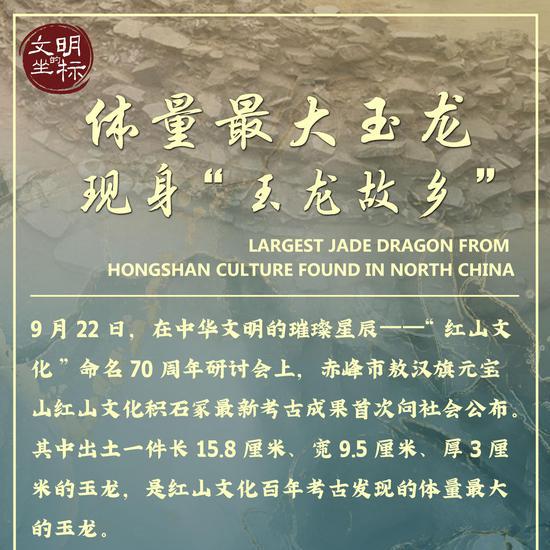
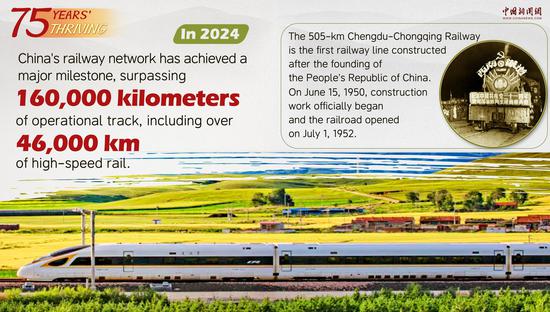
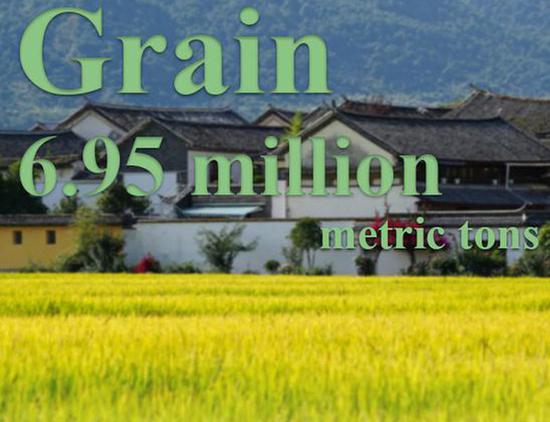



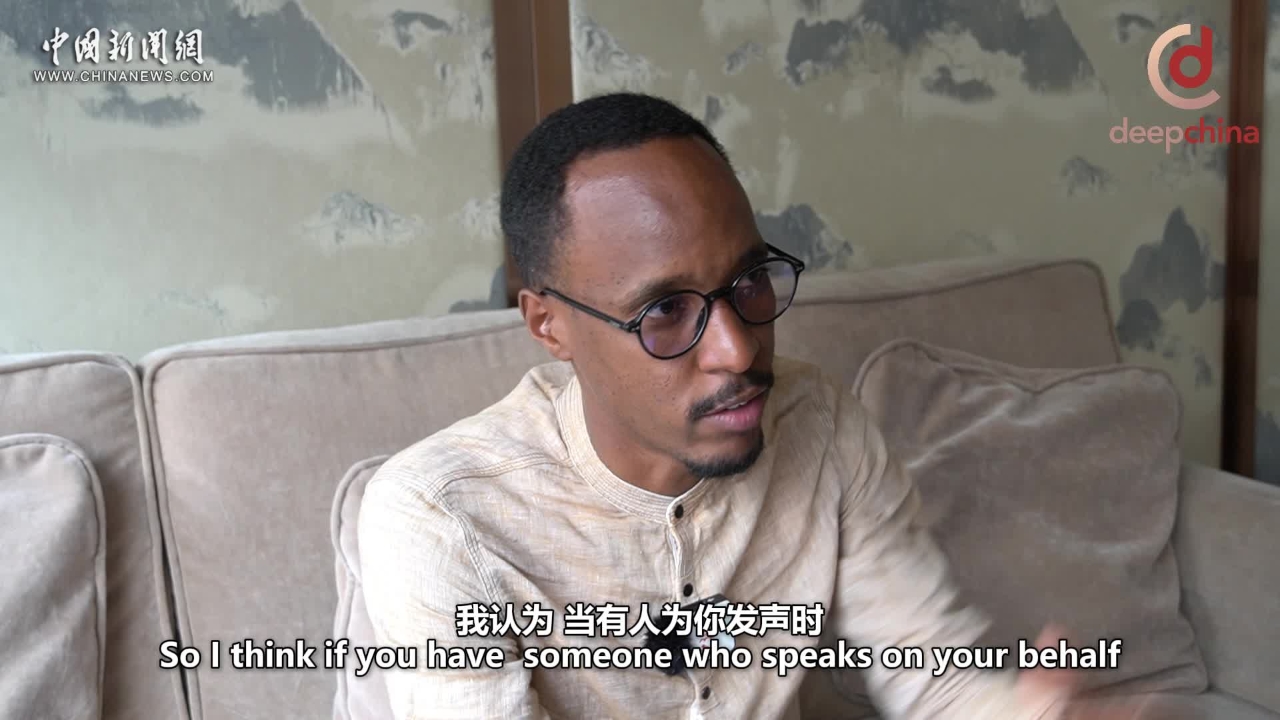

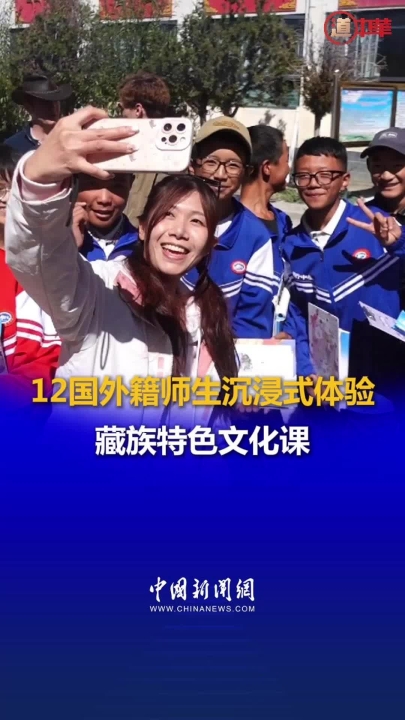

 京公網安備 11010202009201號
京公網安備 11010202009201號